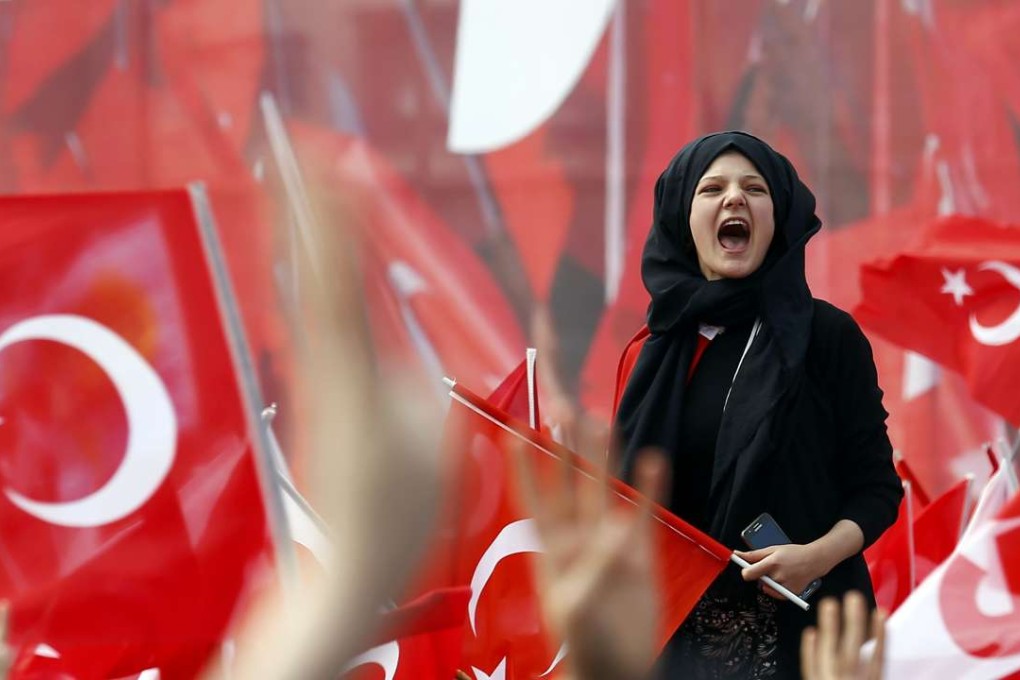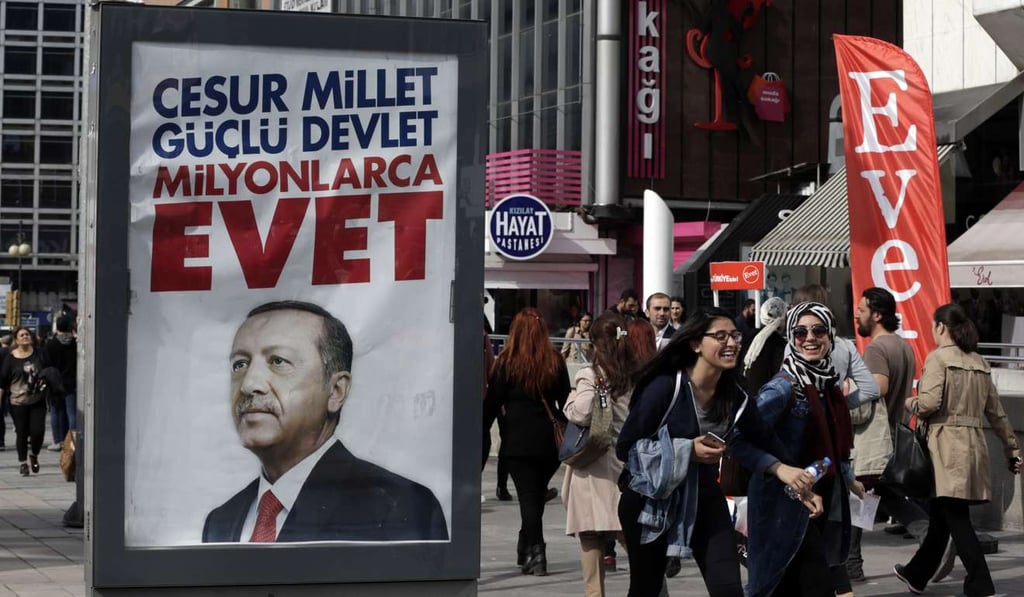Turkey divided over key referendum, with voters choosing between stability and autocracy
In the wake of last year’s failed coup attempt, Erdogan’s supporters say there’s an even stronger need for a presidency that can withstand plots by unelected officials

A turbulent year in Turkish politics reaches its tipping point on Sunday with a referendum on President Recep Tayyip Erdogan’s rule. Voters face two stark choices. They will either say yes to constitutional amendments that would give Erdogan sweeping new powers – which his opponents fear will be a de facto dictatorship – or no – an act of defiance that would nominally preserve Turkey’s battered democracy.
Erdogan’s proposed system “has no parallel in the modern world”, wrote Henri Barkey, director of the Middle East Programme at the Woodrow Wilson International Centre for Scholars.
“It eviscerates the power of both the legislative and judicial branches of the government in favour of the executive, which will be concentrated in the hands of one person.”

It would also create new presidential term limits allowing Erdogan to remain in office as late as 2029. If all goes to plan, Erdogan will have governed his nation for more than a quarter of a century when he finally steps down.
In the wake of last year’s failed coup attempt, his supporters say there’s an even stronger need for a presidency that can withstand plots by unelected officials.